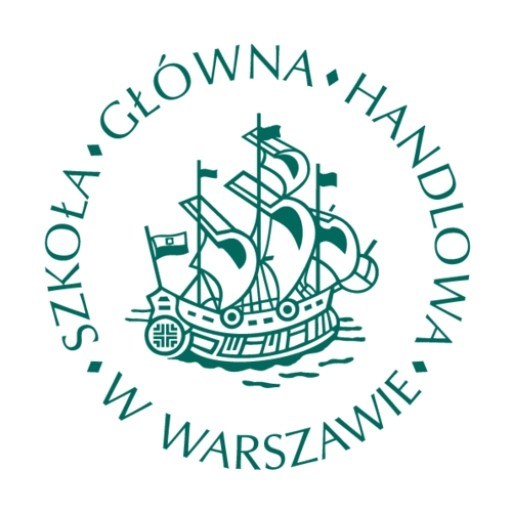Photos of university / #aarhus_university
The Master's degree in Quantitative Economics (IMSQE) at Aarhus University is a comprehensive and rigorous program designed to equip students with advanced analytical and quantitative skills necessary to understand and address complex economic issues. This program combines theoretical foundations with practical applications, preparing students for careers in academia, consulting, finance, policy analysis, and research institutions. The curriculum offers in-depth coursework in microeconomics, macroeconomics, econometrics, and advanced modeling techniques, enabling students to analyze real-world economic phenomena using modern computational tools and statistical methods. Students will engage with empirical research methods, economic data analysis, and quantitative modeling, gaining the ability to formulate and solve policy problems with evidence-based solutions. The program emphasizes a strong international and interdisciplinary perspective, ensuring graduates are well-prepared to operate in global economic environments. Through a combination of lectures, seminars, project work, and internships, students develop critical thinking, problem-solving, and communication skills vital for professional success in competitive economic fields. The program also provides opportunities for specialized electives, allowing students to tailor their studies toward areas such as labor economics, environmental economics, financial economics, or development economics. With access to Aarhus University's extensive research infrastructure and close collaboration with industry partners, students benefit from a vibrant academic environment that fosters innovation and practical relevance. Graduates of the Quantitative Economics program are highly sought after by employers worldwide for their strong quantitative competence, analytical reasoning, and ability to apply economic theory to real-world challenges. Upon completion, students will possess a robust toolkit to conduct independent research or to pursue further academic studies, including PhD programs. The MSc in Quantitative Economics is committed to fostering intellectual curiosity, professional integrity, and a lifelong learning mindset among its students.
The Bachelor's degree programme in Quantitative Economics (IMSQE) at Aarhus University provides students with a comprehensive education in economic analysis, quantitative methods, and data-driven decision-making. This programme aims to equip students with the theoretical knowledge and practical skills necessary to understand complex economic phenomena and contribute to solving real-world problems in various sectors such as finance, consulting, government, and research.
Throughout the programme, students will gain a solid foundation in microeconomics, macroeconomics, and econometrics, complemented by advanced coursework in mathematical modeling, statistical analysis, and data analysis techniques. The curriculum emphasizes the use of modern software tools for data handling, visualization, and analysis, preparing students to work efficiently with large datasets and complex models. Students will also have the opportunity to engage in empirical research projects that involve collecting, analyzing, and interpreting economic data.
The programme combines theoretical understanding with practical application, often through case studies, group projects, and internships. Students learn to formulate hypotheses, design experiments, and critically evaluate economic models and policies. The programme also emphasizes the development of strong analytical and problem-solving skills, as well as the ability to communicate complex quantitative information clearly and effectively to diverse audiences.
In addition to core coursework, students can choose electives aligned with their interests, such as behavioral economics, financial economics, development economics, or sustainability. The programme encourages international perspectives and often includes opportunities for international exchange or collaboration, broadening students' understanding of global economic issues.
Graduates of the Quantitative Economics programme at Aarhus University are well-prepared for careers in data analysis, economic consulting, policy advisory, or further academic research. The programme's rigorous approach ensures that students develop a quantitative mindset, critical thinking skills, and a deep understanding of economic principles, making them valuable assets in a rapidly evolving economic landscape.
The Bachelor's degree program in Quantitative Economics (IMSQE) at Aarhus University requires students to complete a comprehensive curriculum designed to build strong analytical, mathematical, and economic skills. Admission to the program typically demands a validated upper secondary education with a focus on mathematics and social sciences, as well as proficiency in English. The program spans three years, equivalent to six semesters, and encompasses a combination of compulsory courses, electives, and a final project or thesis. Students are expected to gain foundational knowledge in microeconomics, macroeconomics, and econometrics in the initial semesters. These core subjects are complemented by courses in mathematics, statistics, and data analysis to support rigorous quantitative methods. As the program advances, students are encouraged to choose specialization tracks or electives aligned with their interests, such as financial economics, development economics, or policy analysis. Practical skills are emphasized through case studies, project work, and internships providing real-world application of theoretical concepts. Participation in seminars, workshops, and research activities is encouraged to deepen understanding and foster critical thinking. Language proficiency requirements specify a minimum score in English tests like IELTS or TOEFL for international students. The final year typically involves writing a master’s thesis or project demonstrating the student's ability to conduct independent research. Graduates of the IMSQE program are equipped for careers in economic consulting, policymaking, finance, or further academic study. Throughout the program, students are supported by university facilities, academic advisors, and industry partnerships to facilitate their professional development and ensure comprehensive educational experience.
The Quantitative Economics (IMSQE) programme at Aarhus University offers various financing options to support students throughout their studies. Tuition fees for international students are determined by the university and may vary depending on the student's nationality and residency status; however, for students from the EU/EEA, the programme is typically tuition-free, aligning with Danish higher education policies promoting accessible education within the region. Non-EU/EEA students are required to pay tuition fees, which are set annually and detailed on the university’s official website. These fees are designed to cover the costs of high-quality education and other academic services provided by the university.
In addition to tuition fees, students are encouraged to explore external funding avenues such as scholarships, grants, and student loans. Aarhus University offers several merit-based scholarships for international students, which can significantly offset tuition costs; these are highly competitive and based on academic excellence. Danish government-sponsored grants and loans, available through the Danish Agency for Institutions and Educational Grants, may also be accessible, particularly for students from specific countries or regions.
For Danish or EU/EEA students, education is often fully subsidized, but they may need to budget for living expenses, which include accommodation, dining, transportation, and study materials. International students outside the EU/EEA are advised to consider financial planning for both tuition fees and living costs, and to investigate scholarship opportunities early in their application process.
Internships, part-time work opportunities, and student assistant roles may be available to students, providing additional financial support during their studies. The university’s career services offer guidance on employment opportunities and financial planning. Overall, while tuition costs may vary depending on residency status, Aarhus University strives to provide accessible education through various financial support mechanisms, helping students to focus on their academic and professional development in Quantitative Economics.
The Quantitative Economics (IMSQE) programme at Aarhus University offers students a comprehensive education in economic theory combined with advanced quantitative methods. This programme is designed to equip students with the analytical skills necessary to understand and address complex economic issues through rigorous data analysis, mathematical modelling, and statistical techniques. Students enrolled in IMSQE have the opportunity to develop a solid foundation in microeconomics, macroeconomics, and econometrics, along with specialized courses in areas such as behavioral economics, financial economics, and development economics.
Throughout the programme, students engage in both theoretical coursework and practical applications, utilizing modern software tools and programming languages such as R, Stata, and Python to analyze economic data. The curriculum emphasizes critical thinking, problem-solving, and empirical research methods, preparing graduates for careers in academia, government agencies, international organizations, consulting firms, and financial institutions.
The programme typically includes a combination of lectures, seminars, group projects, and individual assignments, fostering a dynamic and interactive learning environment. Students may also have opportunities to undertake internships or participate in research projects, giving them valuable real-world experience and professional networking contacts. The duration of the programme is normally two years for a full-time master's degree, culminating in a thesis where students demonstrate their ability to conduct independent research in quantitative economics.
Aarhus University is renowned for its strong research environment and international outlook, attracting faculty and students from across the globe. The IMSQE programme benefits from this vibrant academic community, providing students access to workshops, guest lectures, and seminars conducted by leading economists. Upon graduation, students are well-prepared to pursue further academic research, such as a PhD, or to enter the labor market with advanced quantitative skills that are highly valued in a data-driven economy.
The programme's admission requirements generally include a relevant bachelor's degree with a solid background in mathematics, economics, or related disciplines. English language proficiency is also required, as the programme is taught entirely in English. Graduates of IMSQE can expect to find employment opportunities in various sectors where economic analysis and quantitative skills are essential, including finance, policy analysis, economic consultancy, and research institutions. The curriculum aims to balance theoretical knowledge with practical skills, making it an ideal choice for students interested in a rigorous, research-oriented approach to economics with a strong quantitative focus.



